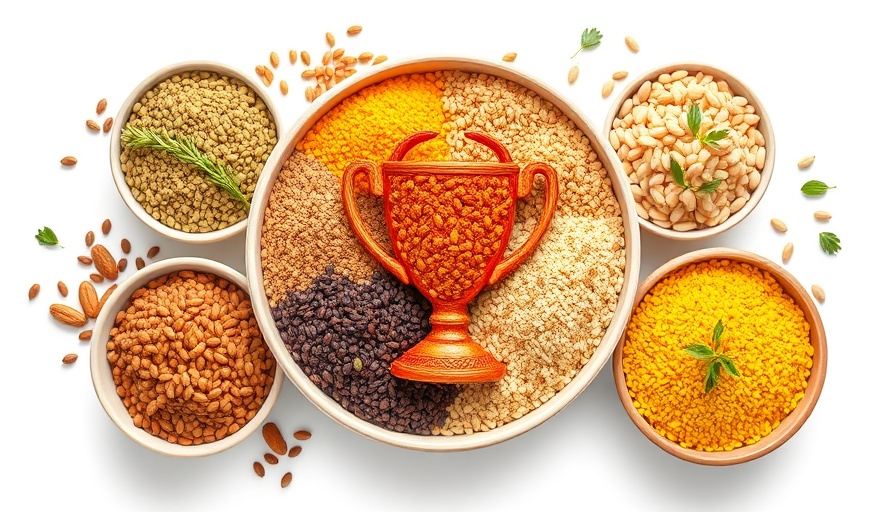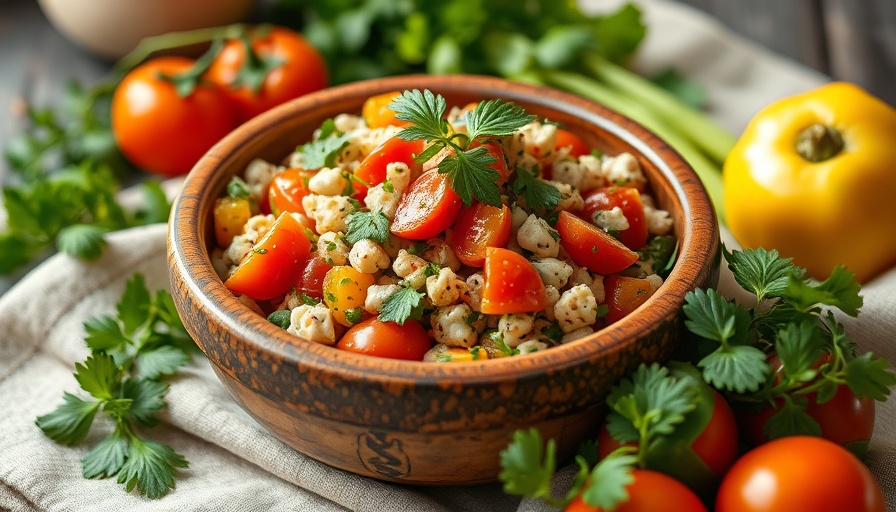
Unlocking the Power of Purple Cabbage: A Nutritional Powerhouse
When it comes to nutrition, many superfoods often hog the spotlight—think kale and quinoa. However, a growing conversation is happening around a less celebrated yet equally powerful food: purple cabbage. Recently highlighted by esteemed medical professionals, this underappreciated vegetable is being dubbed a "nutritional titan" that offers a plethora of health benefits at an affordable price, making it ideal for families aiming for a balanced diet.
In Top Doctors' #1 Most Underrated Superfood At The Grocery Store!, important insights emerged on the health benefits of purple cabbage, prompting us to delve deeper into its nutritional advantages.
The Gut Health Guardian
Professor Franklin Joseph, a leading expert in endocrinology, emphasizes that purple cabbage is not merely a side dish but a significant player in supporting gut health. Rich in fiber and low in calories, this vibrant vegetable is packed with prebiotic fiber that nourishes beneficial gut bacteria. This balance in the microbiome can lead to improvements in digestive health, immunity, and even mood regulation. The potential transformation for the family dinner plate is clear—just a few spoonfuls of raw or lightly cooked purple cabbage can make a considerable difference.
More Than Just Flavor: The Anti-Inflammatory Benefits
Eating purple cabbage is not just about adding color to your meals. The vegetable is abundant in polyphenols and anthocyanins, the same compounds found in berries, known for their anti-inflammatory and antioxidant properties. Studies show that certain varieties of purple cabbage can reduce markers of gut inflammation by a shocking 22% to 40%. This means less gastrointestinal discomfort for family members, fostering a happier household.
Affordable Nutrition for Modern Families
In today's economy, many families find it challenging to maintain a healthy diet without breaking the bank. Purple cabbage stands out as an affordable solution. Professor Joseph points out that you don't need to spend a fortune to eat for longevity—purple cabbage is a cost-effective addition to any meal. It's easy to store and can last for weeks in the fridge, making it a practical choice for busy households.
Dr. Michael Greger's Endorsement: Make It a Pantry Staple!
Food experts are echoing the importance of incorporating purple cabbage into our diets. Dr. Michael Greger has said, "Everyone should always have one in the crisper at home." He recommends that families keep this crunchy delight on hand to enhance the nutrition of their meals creatively. After all, why not transform humble coleslaw into an energizing side dish filled with essential vitamins?
Conclusion: Get Creative with Purple Cabbage
Incorporating purple cabbage into your family's diet can be both simple and delicious. Try adding it to salads, stir-fries, or even smoothies for a nutritional boost. The myriad of health benefits—from reducing inflammation to enhancing gut health—make purple cabbage truly essential for any plant-based diet. So next time you're at the grocery store, don't overlook this affordable superfood. Your healthy body will thank you for it!
 Add Row
Add Row  Add
Add 




Write A Comment